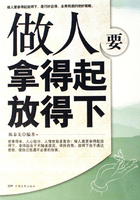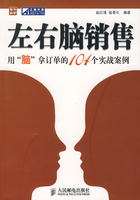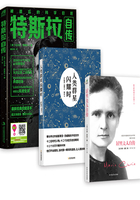The man, who played in Switzerland the part played so successfully by Luther in Germany, was Ulrich Zwingli. He was the son of rich parents, born at Wildhaus, in the canton of Saint Gall (1484), educated at the Universities of Berne, Basle, and Vienna, and after his ordination to the priesthood, appointed to the parish of Glarus. He was a young man of remarkable ability both as a student and as a preacher, and was fortunate enough to attract the notice of a papal legate, through whose influence a pension was assigned to him to enable him to prosecute his studies. He was a good classical scholar with a more than average knowledge of Hebrew, and well versed in the Scriptures and in the writings of the Fathers. For a time he acted as chaplain to some Swiss regiments fighting in Italy for the Pope against France, and on his return to his native country he was appointed preacher at the famous shrine of Our Lady at Einsiedeln.[1] Here his oratorical powers stood him in good stead, but his judgment and level-headedness were not on the same high plane as his declamatory powers, nor was his own private life in keeping with the sanctity of the place or with the denunciations that he hurled so recklessly against his clerical brethren. He began to attack pilgrimages and devotions to the Blessed Virgin, but it was not so much for this as for his unlawful relations with a woman of bad character that he was relieved of his office.[2]
He retired to Zurich where he was appointed preacher in the cathedral.
Here he denounced the lives of the clergy and the abuses in the Church, relying, as he stated, upon what he had seen himself in Italy during his residence there as chaplain to the Swiss mercenaries. Like Luther, he well knew how to win the attention and sympathy of the mob by his appeals to the national feelings of his countrymen, and like Luther he insisted that the Scriptures were the sole rule of faith. He denounced in the strongest language the immorality and vices of the clergy, celibacy, vows of chastity, pilgrimages and the veneration of the saints, but for so far he had not broken entirely with the Church.
The preaching of the Indulgences promulgated by Leo X. in Constance was entrusted to the Franciscans. Their work was a difficult one especially as the Grand Council of Zurich forbade them to persist, as, indeed, did also the able and zealous Hugo von Hohenlandenberg, Bishop of Constance, in whose diocese Zurich was situated. Zwingli, confident of the support of the city authorities, attacked the doctrine of Indulgences and was backed by the Grand Council, which ordered, at his instigation, that the Word of God should be preached according to the Scriptures, regardless of tradition or the interpretation of the Church. Later on he directed his attacks against the meritoriousness of good works and the practice of fast and abstinence (1522), and about the same time he addressed a petition to the Bishop of Constance demanding that he should not interfere with the preaching of the pure Word of God nor set any obstacle to the marriage of his priests. He admitted publicly that his relations with women had been disgraceful, that he had learned from his own personal experience how impossible of fulfilment was the vow of chastity, and that marriage was the only remedy that would enable him to overcome the emotions of carnal lust referred to by St. Paul in his epistle to the Corinthians (I. 7, 9).
The bishop refused to yield to this demand insisting on the strict observance of celibacy, and appealed to the Grand Council to support him with the full weight of their authority (April 1522).
Incensed by this refusal Zwingli shook off the yoke of ecclesiastical authority, rejected the primacy of the Pope, and the infallibility of General Councils, denounced celibacy and vows of chastity as inventions of the devil, and called upon the Swiss people to support him in his fight for religious freedom. Once before, in 1520, Leo X.
had summoned Zwingli to Rome to answer for his teaching, but the summons had been unheeded. Adrian VI. made another attempt to win him from his dangerous course by a letter full of kindness and sympathy, but his remonstrance produced no effect (1523). The Grand Council of Zurich, hopeful of securing a preponderating influence in Switzerland by taking the lead in the new movement, favoured Zwingli. Instead of responding to the appeal of the Bishop of Constance it announced a great religious disputation to be held in January 1523, to which both Zwingli and his opponents were summoned for the explanation and defence of their views. Zwingli put forward sixty-seven theses, the principal of which were that the Bible is the sole rule of faith, that the Church is not a visible society but only an assembly of the elect, of which body Christ is the only true head, that consequently the jurisdiction of the Pope and of the bishops is a usurpation devoid of scriptural authority, that the Mass, Confession, Purgatory, and Intercession of the Saints are to be rejected as derogatory to the merits of Christ, and finally, that clerical celibacy and monastic vows, instead of being counsels of perfection, are only cloaks for sin and hypocrisy. The Bishop of Constance refused to take part in such a disputation. His vicar-general, Johann Faber of Constance, however, attended the meeting, not indeed to take part in the discussion but merely to protest against it as opposed to the authority of the Church and of the councils. As his protests were unheeded, he undertook to defend the doctrines attacked, but in the end the Grand Council declared that the victory rested with Zwingli.















